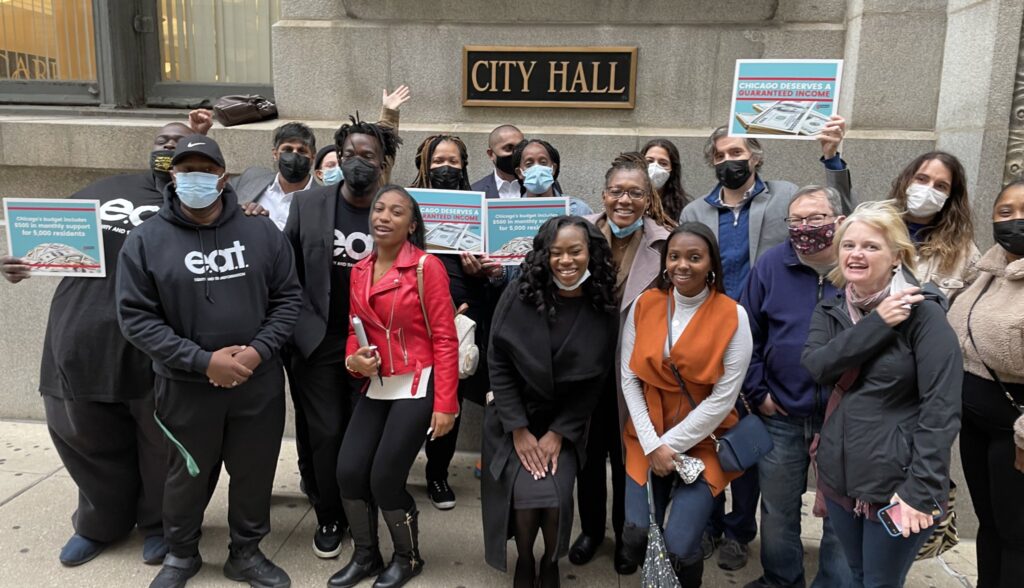5,000 Chicagoans will receive $500 a month in one of nation's largest publicly funded guaranteed income programs
November 4, 2021

Everyone deserves the financial resources to support themselves and their family members.
The City of Chicago’s FY 2022 budget, passed last week by the city council, includes $31.5 million for a guaranteed income pilot program. The program will benefit 5,000 families in Chicago with $500 for a year. A guaranteed income offers the best hope to provide people with resources to make important life choices that everyone wants the ability to make—where to live, how to invest in a better future through education or starting a business, and how to best support children. Families know how to spend money in ways that would best help them.
The Shriver Center supports a guaranteed income to ensure the financial security of all families.
“Across the country pilot programs offering a guaranteed income to residents have measurably improved participant’s financial stability. Participants in these programs are using funds in ways that benefit their family’s long-term economic health by paying rent, taking a community college course, saving to cover the expense of starting a small business, or eliminating old debts that have trapped families in poverty,” said Shriver Center President & CEO Audra Wilson during last month’s press conference organized by our partners, Economic Security for Illinois.
The Shriver Center is advocating for direct cash assistance at the local, state, and federal level. We support policies and programs that provide a guaranteed income floor for the lowest income people.
It’s time to ensure the financial security of all families by providing a guaranteed income.
To learn more about guaranteed income, as well as other strategies for ensuring economic justice for all, watch a recording of our recent Road to Recovery event, Building an Economy That Works for Everyone.
Systemic inequities and the legacy of structural racism make it harder for low-income people and people of color to achieve financial stability.